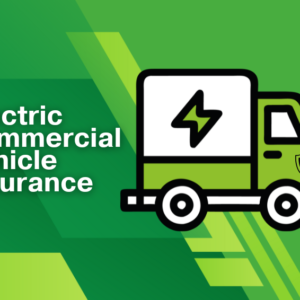Are you looking to open a new bank account or switch from your current bank? With the rise of agency banking, you may be wondering whether it’s a better option than traditional banking. Both offer various banking services, but which one is better for you?
In this article, we will explore the differences between agency banking vs. traditional banking and highlight the advantages and drawbacks of each. By the end of this article, you’ll have a clearer understanding of which banking option is best suited to your needs and preferences.
Whether you’re looking for cost-effective banking services or a personalized banking experience, we’ve got you covered. So, let’s dive in and see which banking option is better for you – agency banking or traditional banking.
Advantages of Agency Banking
With the advent of technology and increased access to mobile devices, agency banking has become a popular option for many customers.
Here are some advantages of agency banking for banks that may sway you toward this option:
1. Increased Accessibility to Financial Services
Agency banking allows customers to access banking services outside of traditional banking halls. Customers can transact through authorized agents in their local communities, making banking services more accessible to people who live far away from a bank branch.
For example, Equity Bank in Kenya has over 40,000 agents spread across the country, providing customers with easy access to banking services.
2. Cost-Effective
One of the main benefits of agency banking is its cost-effectiveness. As agents handle most of the banking transactions, banks save on the costs associated with running a traditional banking hall. As a result, customers can enjoy lower transaction fees and other charges.
For example, in Nigeria, First Bank partnered with a mobile payment provider to offer banking services at lower transaction fees than traditional banking services.
3. Efficient Banking Services
Agency banking offers faster and more efficient banking services than traditional banking. Agents use mobile devices to perform transactions, which reduces the time spent on paperwork and manual processes.
For example, MTN Uganda partnered with a financial institution to offer mobile banking services through agents, enabling customers to access banking services without physically visiting a bank branch.
4. Incentives to Agents
As agents play a crucial role in the agency banking ecosystem, banks offer incentives to encourage them to offer quality services. These incentives can range from commissions on transactions to additional training and support.
For example, Airtel Money partnered with a financial institution in Zambia to offer banking services through agents, who are incentivized with commissions and bonuses based on the volume and value of transactions conducted.
Advantages of Traditional Banking
While agency banking has its benefits, traditional banking still holds its advantages for many customers.
Here are some advantages of traditional banking that may sway you towards this option:
1. Secure and Regulated Banking Services
Traditional banks are highly regulated, ensuring that customers’ deposits and personal information are secure. Banks have robust cyber security software, systems and protocols to protect against fraud and cybercrime.
For example, Bank of America is one of the traditional banks that invests heavily in security measures to protect its customers’ data. The bank uses biometric authentication to verify customers’ identities and advanced encryption to secure online transactions.
2. Range of Products and Services
Traditional banks offer a wide range of financial products and services such as loans, mortgages, and credit cards. These services are designed to meet the varying needs of customers, making traditional banking a one-stop-shop for financial services.
For example, JPMorgan Chase offers a variety of products and services such as credit cards, mortgages, and investment opportunities to its customers.
3. Personalized Banking Experience
With traditional banking, customers can build a personal relationship with their bank and their banker. This means that customers can receive tailored advice and solutions that fit their unique financial situation.
For example, Wells Fargo provides personalized banking services through its team of financial advisors who offer tailored advice to customers.
4. Advanced Digital Services
Although traditional banking is often associated with brick-and-mortar branches, many banks now offer advanced digital services. Customers can access their accounts online, make payments, and even apply for loans from the comfort of their homes.
For example, Citibank offers a range of digital services, including mobile banking, online banking, and voice recognition technology, making banking more convenient for its customers.
Drawbacks of Agency Banking
As with any banking option, agency banking also has its drawbacks. Here are some potential drawbacks of agency banking that you should consider before choosing this option:
1. Limited Range of Banking Services
While agency banking offers basic banking services such as deposits, withdrawals, and transfers, it may not offer more complex services such as investment banking or foreign currency transactions.
2. Lack of Customer Privacy
When customers conduct banking transactions through an agent, their personal and financial information may be exposed to unauthorized parties. This is especially true in areas where data privacy laws are weak or non-existent.
3. Limited Banking Hours
Unlike traditional banking, agency banking may have limited operating hours, making it difficult for customers to conduct transactions outside of these hours.
4. Fraud Risks
Since most agency banking transactions take place in cash, there is a higher risk of fraud, theft, and money laundering.
Drawbacks of Traditional Banking
Traditional banking, despite its advantages, also has its drawbacks that you should consider before choosing this option. Here are some potential drawbacks of traditional banking:
1. High Transaction Fees
Traditional banks may charge high transaction fees and maintenance fees, making it expensive for customers to use their services.
2. Limited Accessibility
Traditional banks may have limited branch locations, making it difficult for customers who live far away from a bank branch to access banking services.
3. Time-Consuming Processes
Traditional banking processes may be time-consuming, involving long queues and paperwork. This may be inconvenient for customers who have busy schedules.
4. Limited Personalization
Despite offering a personalized banking experience, traditional banks may not always offer tailored solutions that meet the unique needs of individual customers.
It’s important to weigh these drawbacks against the advantages of traditional banking before making a decision. If you value security, variety, and a personal touch, traditional banking may be the right choice for you. However, if you prioritize accessibility, cost-effectiveness, and efficiency, agency banking may be a better option. Ultimately, the choice between agency banking and traditional banking depends on your specific needs and preferences.
Agency Banking vs. Traditional Banking: Compare Differences
When it comes to accessing financial services, individuals have multiple options available, including agency banking and traditional banking. Both these approaches have their own set of features and benefits, catering to different needs and preferences.
In this section, we will compare differences between agency banking vs. traditional banking to help you make an informed decision about which option suits you best.
Here’s a pointwise breakdown of the comparison:
Accessibility and Convenience
- Agency Banking
With agency banking, financial services are brought closer to underserved communities and remote areas. The presence of a network of agents ensures increased accessibility and convenience for customers who may not have easy access to traditional bank branches.
- Traditional Banking
While traditional banking offers a widespread network of branches, there might be limitations in terms of availability, especially in remote locations. Customers may need to travel long distances to access banking services.
Cost-effectiveness
- Agency Banking
One of the key advantages of agency banking is its cost-effectiveness. By leveraging existing retail networks and minimizing overhead expenses, agency banks can offer lower transaction fees and reduced minimum balance requirements.
- Traditional Banking
Traditional banks, due to their physical infrastructure and larger operational costs, may have higher transaction fees, minimum balance requirements, and charges associated with various services.
Range of Services
- Agency Banking
Agency banks typically offer a focused range of basic banking services, such as cash deposits, withdrawals, fund transfers, and bill payments. They may not provide the extensive suite of financial products and specialized services that traditional banks offer.
- Traditional Banking
Traditional banks excel in offering a comprehensive range of financial services, including savings and checking accounts, loans, credit cards, investment opportunities, insurance, and personalized financial advice. They cater to diverse customer needs under one roof.
Technology and Innovation
- Agency Banking
Agency banking is often at the forefront of technological advancements in the financial sector. By leveraging digital platforms and mobile technology, agency banks provide efficient and user-friendly services, such as mobile banking apps and USSD codes for transactions.
- Traditional Banking
While traditional banks have been embracing technology and incorporating digital solutions, they may face limitations due to legacy systems and bureaucratic processes. However, many traditional banks are actively investing in digital transformation to enhance customer experience.
Customer Service and Trust
- Agency Banking
Agency banks strive to provide reliable customer support through their network of agents. While they may not offer face-to-face interactions with dedicated relationship managers, they focus on ensuring timely and satisfactory assistance to customers.
- Traditional Banking
Traditional banks are known for their personalized customer service. Customers can visit bank branches and have face-to-face interactions with experienced staff, including financial advisors, who can provide guidance and expertise tailored to their individual needs. Established banks also enjoy a reputation for trust and reliability.
Agency Banking vs. Traditional Banking: Which One to Choose?
Choosing between agency banking and traditional banking can be a difficult decision. To make the right choice, there are several factors you should consider.
Here are some key factors to keep in mind when choosing between agency banking and traditional banking:
1. Accessibility
Consider the location and availability of banking services in your area. If you live in a remote area, a next-gen agency banking solution may be a more accessible option. If you live in an urban area, traditional banking may be more convenient.
2. Banking Needs
Consider the types of banking services you require. If you need complex financial services, traditional banking may be a better option. If you only require basic banking services, agency banking may be sufficient.
3. Security
Consider the security measures implemented by your preferred banking option. If you prioritize security, traditional banking may be the better option, as they are highly regulated and have robust security systems.
However, reputable agency banking providers also prioritize security and take measures to protect customers’ personal and financial information.
4. Cost
Consider the fees and costs associated with each banking option. If you value cost-effectiveness, agency banking may be a better option, as they typically have lower transaction fees and maintenance fees. However, traditional banks may offer better interest rates on loans and other financial products.
5. Personalization
Consider how important personalized banking services are to you. If you value a personal touch, traditional banking may be the better option, as they offer personalized advice and solutions. However, some agency banking providers also offer personalized services through their agents.
6. Analyzing personal needs
When evaluating your banking requirements, take into account factors such as your location, frequency of transactions, and the specific services you need. Consider whether you prefer in-person interactions or if you are comfortable with digital banking solutions.
7. Weighing the pros and cons
It’s essential to weigh the advantages and disadvantages of agency banking and traditional banking. Evaluate the benefits of agency banking, such as increased accessibility, lower costs, and convenience, against the advantages of traditional banking, including a wide range of services, an established reputation, and face-to-face interaction.
8. Considering individual circumstances
Your individual financial situation and goals play a significant role in the decision-making process. For example, if you live in a remote area where traditional banks have limited presence, agency banking might offer better accessibility. On the other hand, if you require specialized financial services or value the expertise of financial advisors, traditional banking may be a more suitable choice. Consider how each option aligns with your specific circumstances and objectives.
Conclusion
The choice between agency banking vs. traditional banking ultimately depends on your specific needs and preferences. Agency banking offers accessibility, convenience, and cost-effectiveness, while conventional banking offers security, a wide range of services, and personalized solutions.
It’s essential to consider factors such as accessibility, banking needs, security, cost, and personalization when making your decision. Ultimately, the key is to choose a reputable banking provider that offers the services and features you require while prioritizing your privacy and security.






